Exploring the Power of Communities of Practice in Early Years Education
In this edition of the LINC blog, LINC+ CPD Tutor Lorraine Diggins takes us on a deep dive into the realm of collaborative learning. Through vivid descriptions and first-hand experiences, Lorraine illustrates how educators are empowered through the dynamic interaction within Communities of Practice.
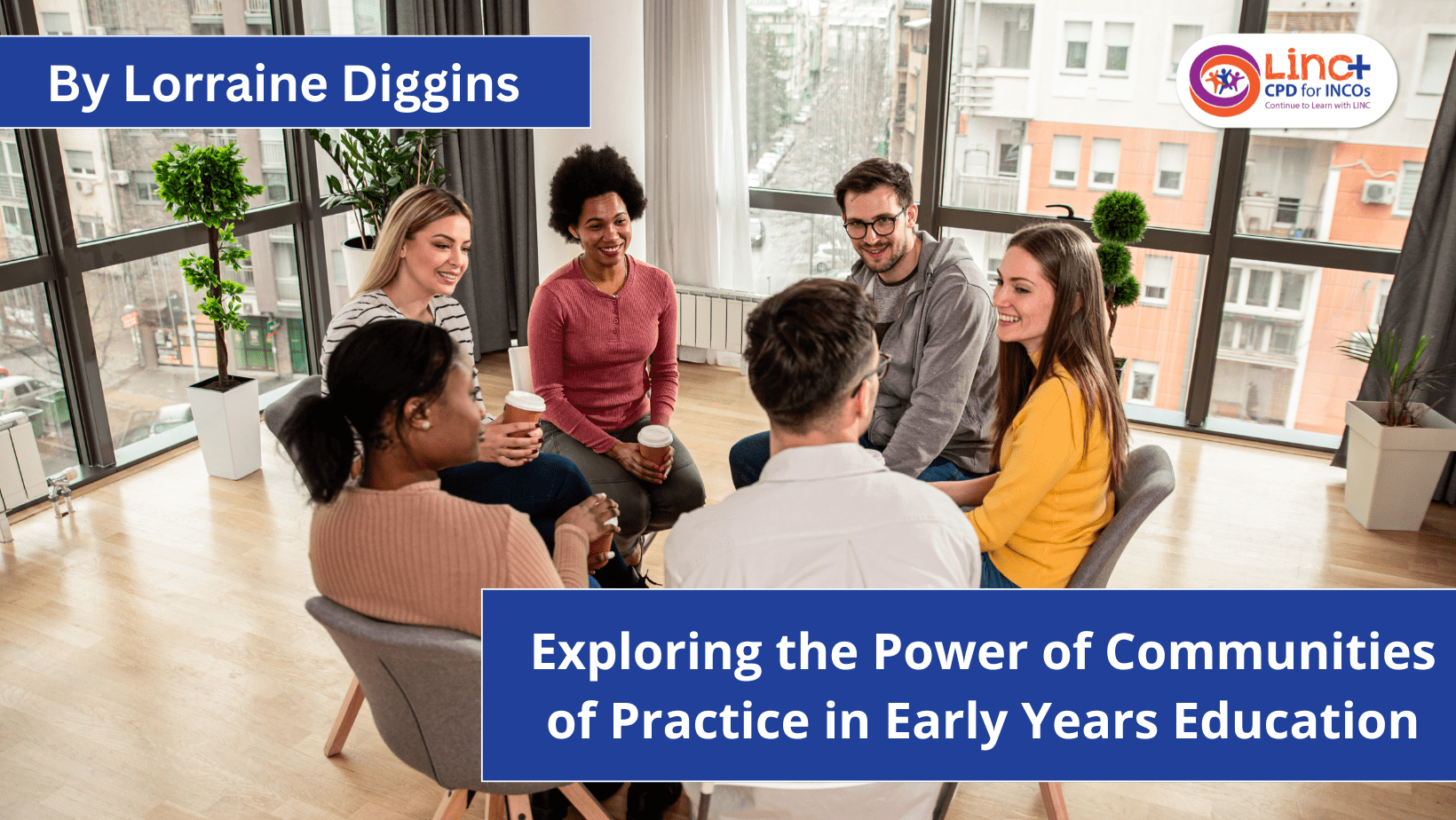
The journey through the Early Years sector is as diverse as the children we nurture. Paths range from those with QQI Level 5 awards to Master’s degrees, reflecting a wide spectrum of experiences and expertise. Yet, amidst this diversity, our shared passion for early years education and commitment to inclusive practices unite us. As we dedicate ourselves to fostering the development of young minds, it’s essential to acknowledge the collaborative learning that occurs daily amongst peers.
In my ongoing PhD research, I delve into the significance of Communities of Practice within the Early Years sector. Working closely with the LINC+ CPD Programme has provided me with invaluable insights into facilitating these communities. Below, I share some preliminary findings.
The Four Pillars of Communities of Practice:
1. Professional Development: Collaborating with peers allows us to exchange best practices, discuss challenges, and stay abreast of the latest research and methodologies in Early Childhood Education. Sharing resources, whether it’s an insightful article, a thought-provoking podcast, or lessons learned from the LINC programme, enriches our professional growth and encourages a culture of continuous learning.
2. Support and Networking: The nature of our work in the Early Years sector can be both demanding and isolating. Communities of Practice serve as a vital support network, connecting educators with shared experiences and providing avenues for resource-sharing and emotional support. Taking the initiative to engage with peers through discussion forums or arranging peer-led sessions fosters a sense of community and uplifts everyone involved.
3. Enhanced Collaboration: Collaboration lies at the heart of effective early years education. Communities of Practice facilitate open dialogue, allowing educators to share observations, suggest strategies, and cultivate reciprocal relationships. These collaborative efforts not only inform and support educators but also strengthen relationships with parents, management, and other stakeholders, ultimately benefiting the children in our care.
4. Promotion of Inclusive Practice: Inclusive practices are integral to Early Years Education, and Communities of Practice provide a platform for discussing and implementing them. By sharing strategies and experiences, educators can create more inclusive learning environments where every child can thrive. Embracing diversity, supporting English language learners, and fostering cultural awareness are essential aspects of this endeavour.
This word cloud is taken from Package 1 of the LINC+ CPD Programme, namely, Communities of Practice. It showcases the responses we received from Inclusion Coordinators who are participating in the CPD Programme when they were asked the following question “Share one word to describe a benefit of engaging in a Community of Practice”.
As my research progresses, I am increasingly convinced of the immense value that Communities of Practice offer to Early Years Education. They serve as catalysts for collaboration, continuous learning, and improvement, benefiting educators, children, and the wider community alike.
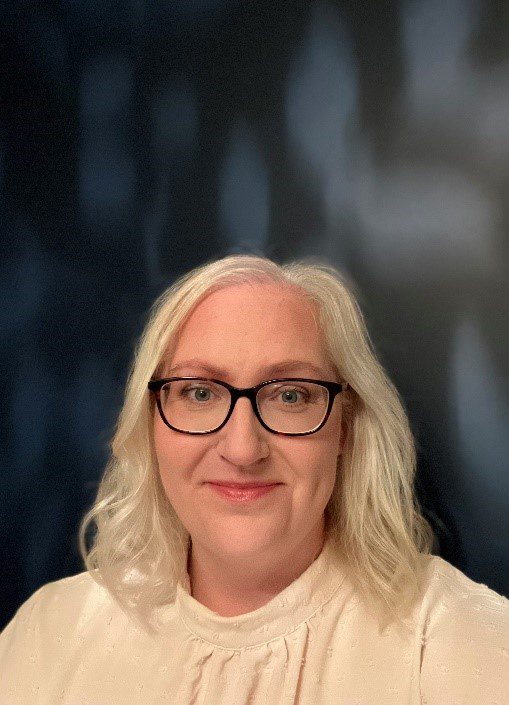
Lorraine Diggins
LINC+ CPD Programme Tutor
Lorraine is the current acting LINC+ CPD Programme tutor. Lorraine graduated with a BA in Early Childhood Care and Education from Mary Immaculate College gaining the College Gold Medal. She has since gained a Master’s in Education in Adult and Further Education and was recently awarded the Doctoral Research Scholarship in Professional Learning. Her research is focusing on the development of Communities of Practice in Early Childhood Education.
Over the years, Lorraine has built a portfolio of CPD courses such as Universal Design for Learning digital Badge, E-moderating digital badge and is on secondment with the LCETB to develop Blended Learning courses. Lorraine has also tutored on QQI Level 5 & 6 Special Needs Assisting and Early Learning and Care courses. Before joining the LINC Team Lorraine worked as an Early Years Educator in various settings and had the wonderful experience of leading a team in an outdoor preschool with a nature-based pedagogy. Lorraine has a keen interest in inclusive education, communities of practice, continuous professional development and mentoring.
You may also like:
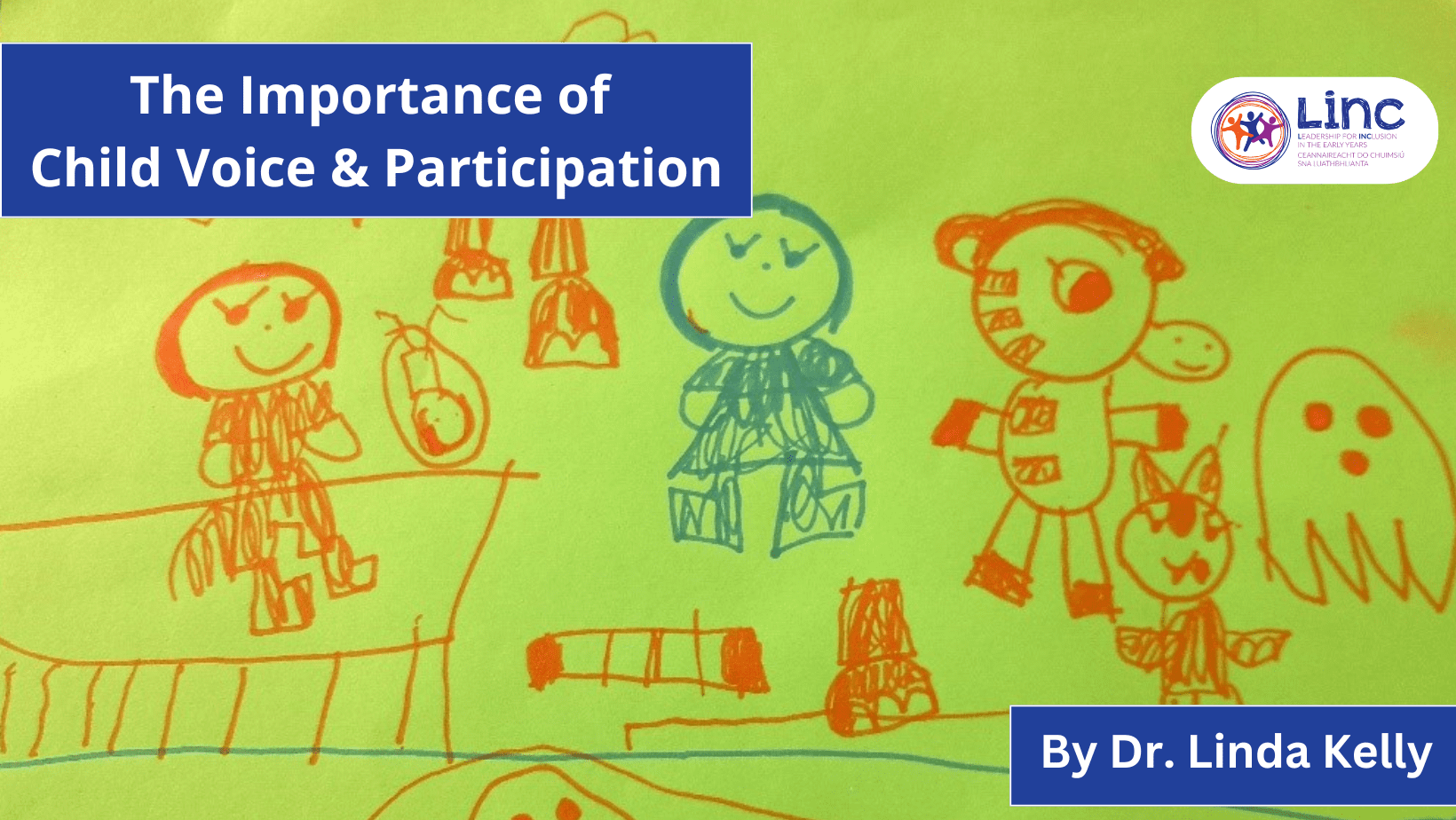
Children Should be Seen and Heard: The Importance of Child Voice and Participation
Children Should be Seen and Heard : The Importance of Child Voice and Participation In this edition of the LINC Blog, Dr. Linda Kelly explores the critical importance of child voice and participation in early childhood settings. Highlighting key insights from...
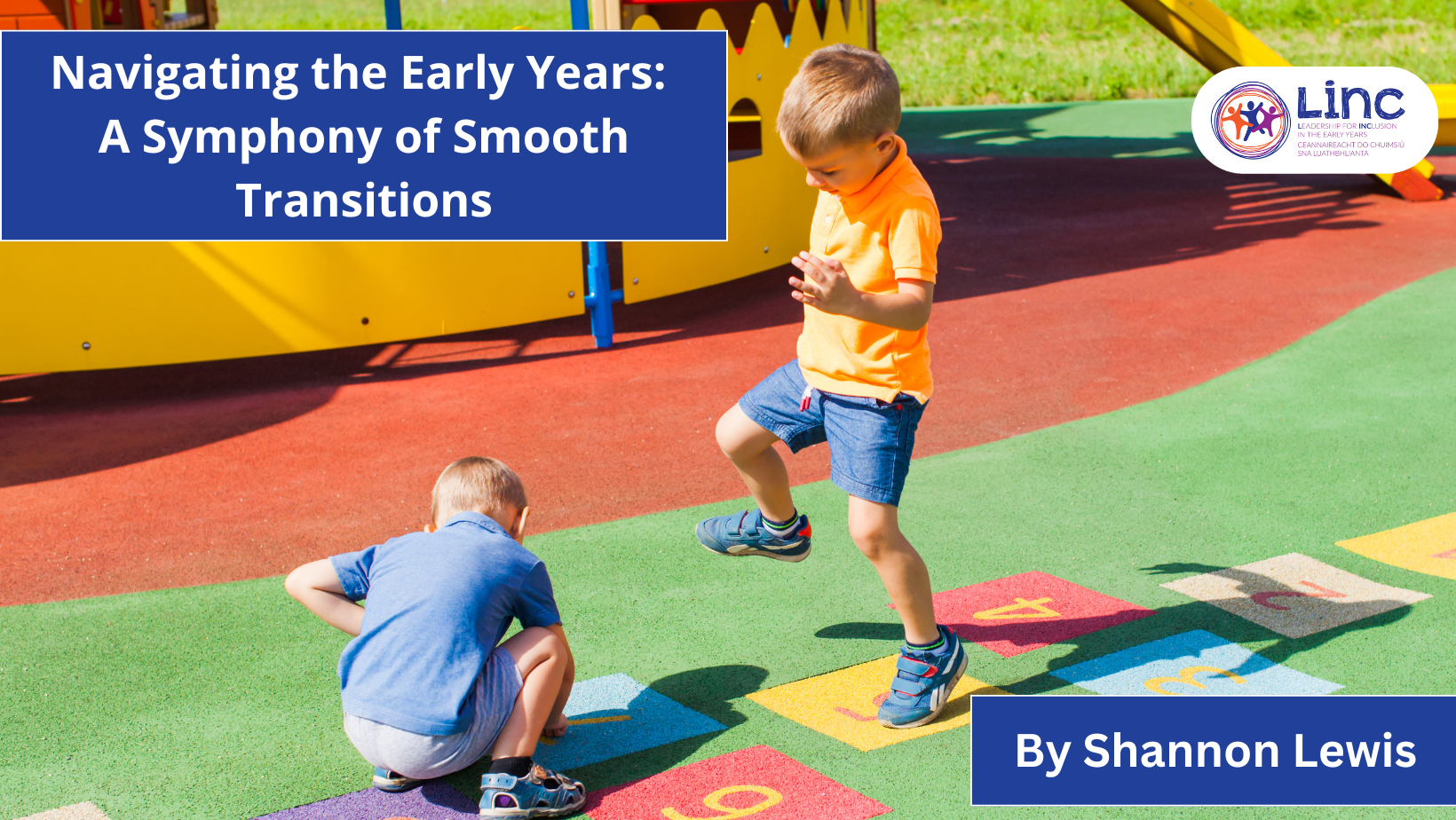
Navigating the Early Years: A Symphony of Smooth Transitions
Navigating the Early Years: A Symphony of Smooth Transitions In this edition of the LINC Blog, LINC Graduate Shannon Lewis discusses the the many transitions that children encounter in the early years setting, and how we should "Envision this adventure as a...
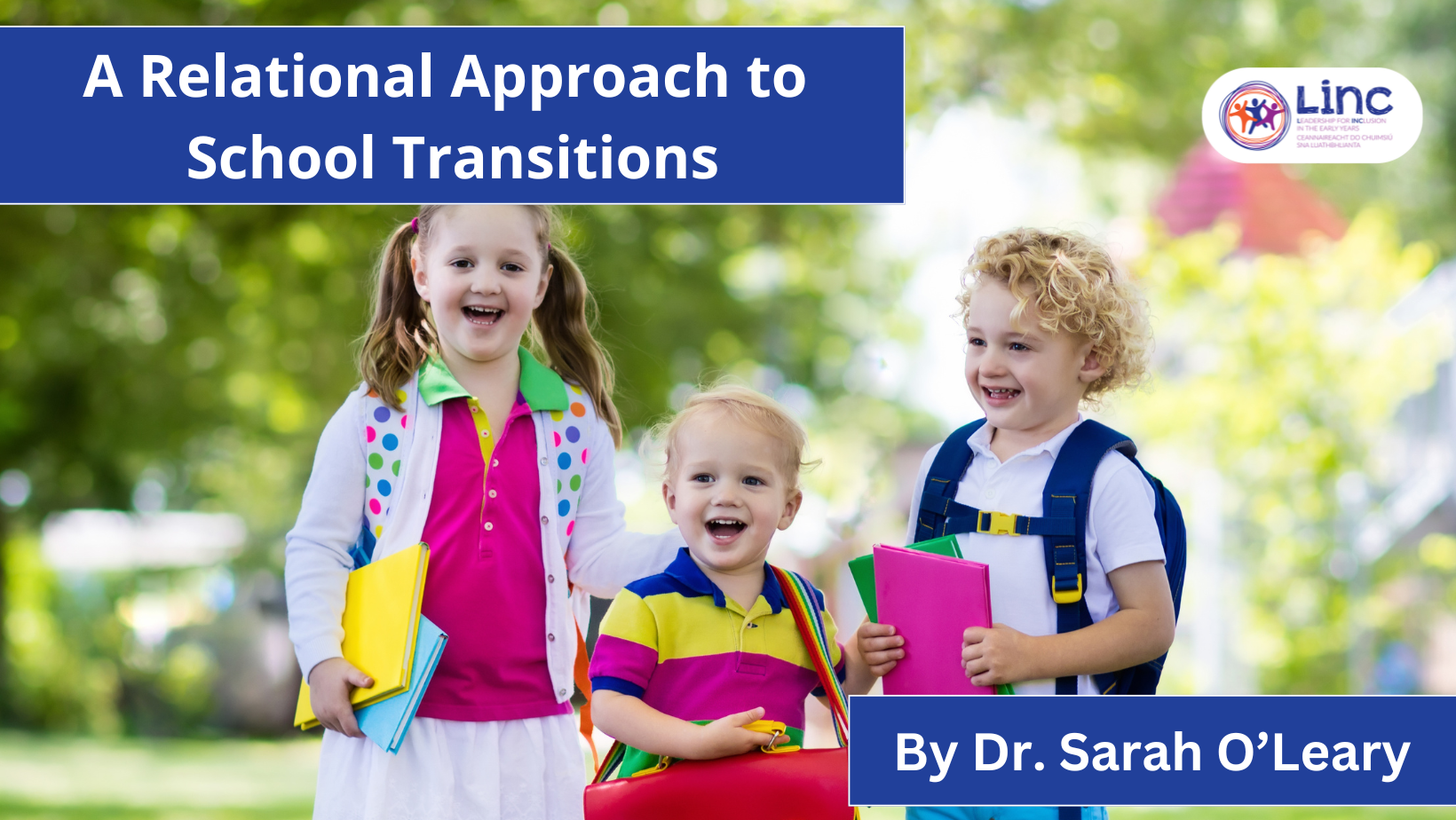
A Relational Approach to School Transitions
A Relational Approach to School Transitions In this edition of the LINC Blog, Assistant LINC Tutor & Researcher/Lecturer in Inclusion Education, Dr. Sarah O'Leary explores the critical role of relational pedagogy in easing children's transition to primary...


